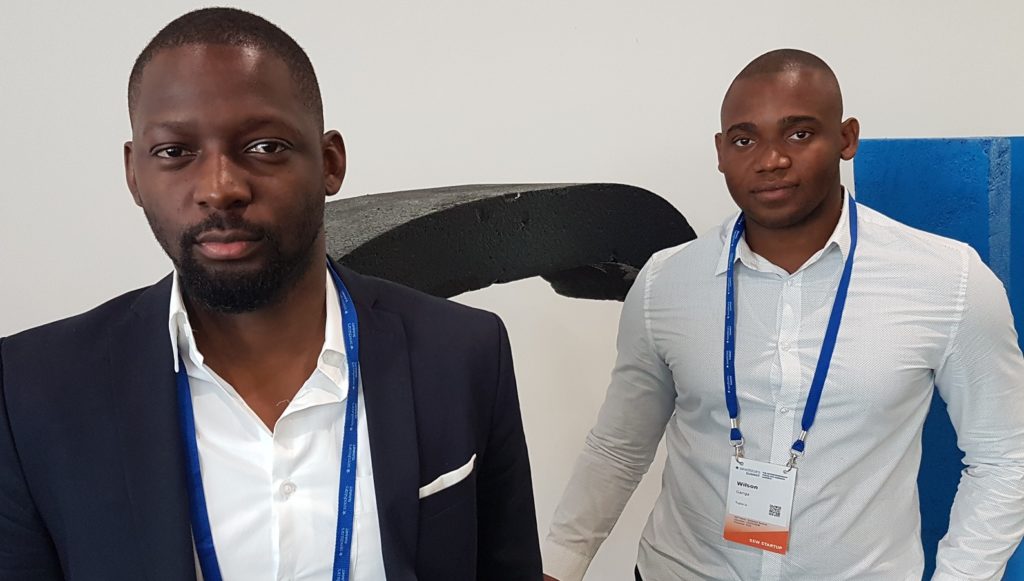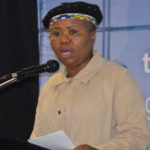We all have them. Those apps we open without thinking. Not because we need anything in particular, but because they feel… safe, in some…
Angolan capital’s traffic proves no headache for delivery startup Tupuca

Angola’s capital Luanda is notorious for some of the worst traffic on the continent. Now four entrepreneurs founders who run a food delivery startup in the city are seeking to capitalise on what is usually a headache for residents there.
Since Wilson Ganga, Erickson Mvezi, Patrice Francisco and Sydney Teixeira set up Tupuca in 2015 the startup has scored a collective $200 000 from two investors. In recent months deliveries through the app from restaurants in the city have grown a few times over.
“(Traffic is) terrible but that’s how it benefits us, because in lunchtime instead of people going into the traffic to get one of their favourite meals, everyone sees it as a convenience to order from Tupuca,” says Ganga, who also serves as the startup’s marketing director.
Angolan food delivery Tupuca has seen orders grow from 400 to 8000 a month in one year
He and Mvezi (who is CEO of the company) were speaking at the Seedstars Summit in Lausanne, last week, where Ghanaian startup AgroCenta was named 2018 Seedstars Global Winner. Ventureburn was a guest.
Read more: African agritech startup AgroCenta named 2018 Seedstars Global winner
Read more: Seedstars winner AgroCenta secures third of $750 000 funding from US investor
Orders to Tupuca have grown from 400 a month in January last year, to 8000 to January this year. Sine then orders have now climbed to 11 000 and Mvezi projects deliveries to reach 30 000 a month by the end of this year.
“Now we have a good demand, which is growing constantly to a point where sometimes when restaurants have a campaign we can’t even handle the number of orders,” says Mvezi.
At present 79 restaurants are actively using the platform. A further 120 clients have signed up but are not yet using the service, either because the startup still needs to vet them for the quality of food they serve, or because the establishments are too far away from the city centre. Mvezi says he and his colleagues want to ensure that customers are only given only the best quality restaurants.
‘Minimising costs’
Drivers have to bring their own motorbikes, while the startup supplies backpacks and smartphones, while insuring the startup’s over 60 drivers. “That way it minimises our costs… and they get a cut from the commission we make from the delivery fees,” says Mvezi.
Ironically Ganga ran a food delivery startup with college room mates in an Indiana university while he was studying business administration in the US. The startup is still running, though he is no longer involved.
Before helping found Tupuca, Mvezi studied at Hult International Business School in San Francisco in 2015 where he says he got some exposure to startups.
Initially the four wanted to offer a delivery service for clothing boutiques, but pivoted to food delivery for restaurants and takeaway places when they discovered that boutique stores were not ready for such a service.
In the beginning it wasn’t easy. It took six months to get their first food place signed on. “First they see young people knocking on their door (and are like) ‘food delivery I don’t need it’,” says Ganga. “It took time, but once we convinced the first one we were able to convince the second one and once a popular one (restaurant) came in everything was easier from there.”
The company bootstrapped the business until last year when they were able to clinch combined investments totaling $200 000 — from US businessman Rohit Daswani who lives in Nigeria and a local restaurant owner Pramod Asija.
App’s regular users is key focus
Mvezi says key has been the startup’s focus on trying to serve their 4000 current regular users — those who use the app repeatedly (so far a total of about 30 000 users have downloaded the app).
On the back of this the startup plans to add grocery and pharmacy deliveries. “So the likelihood of him (users) coming back it’s higher because there are different reasons to capture them,” says Mvezi.
And the company has already been contacted by investors and entrepreneurs from neighbouring and nearby countries, such as Congo and Mozambique, interested in opening a similar service there.
If it works in Luanda, perhaps the app can help Kinshasa and Maputo residents too in getting by in increasingly congested Africa cities. That now is a bet Tupuca’s four founders are hoping will work out in their favour.
Featured image: Two of the four Tupuca founders — CEO Erickson Mvezi (left) and Marketing director Wilson Ganga (right)
Ventureburn was a guest of Seedstars at its annual world summit which takes place today (12 April 2018) in Lausanne, Switzerland.

